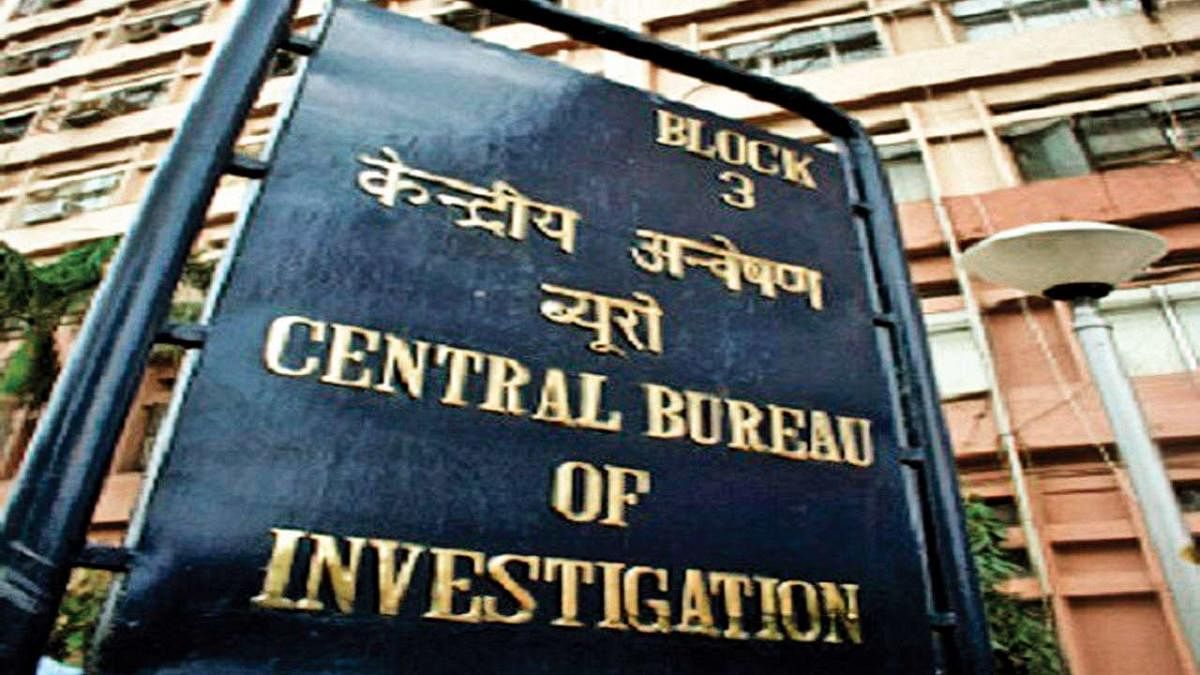
Many non-BJP-ruled states -- Punjab, Maharashtra, Jharkhand, West Bengal, Rajasthan, Chhattisgarh and now Kerala -- have shut their doors to the CBI by withdrawing the general consent accorded by the state governments to the central agency to investigate cases in their territories. Now, the CBI will need permission from these states to investigate cases in their jurisdictions. Under section 6 of the Delhi Special Police Establishment Act, 1946, all states except Delhi and the Union Territories have the option to give their consent to CBI to investigate a case in the state because law and order is a state subject and the CBI cannot investigate in a state as a matter of right. The decisions raise the larger issue of Centre-state relations.
The CBI owes its origins to a special order passed by the colonial government in the early stages of World War II (1941). A Special Police Establishment (SPE) under a deputy inspector general in the then Department of War was created with the mandate to investigate cases of bribery and corruption in transactions with which the War and Supply Department of the pre-Independence Government of India was concerned. Later, the activities of the SPE were extended to the Railways, and in 1946, the Delhi Special Police Establishment (DSPE) Act was passed, which led to the establishment of the Central Bureau of Investigation by a resolution dated April 1, 1963. Though the Director of the CBI is appointed on the recommendation of a high-power committee consisting of the Prime Minister, the Leader of Opposition in the Lok Sabha, and the Chief Justice of India, successive governments have used the agency to intimidate their political opponents.
As per Section 6 of the DSPE Act, CBI needs consent of the state government to investigate a case. The CBI manual provides, “The central government can authorise CBI to investigate such a crime in a state but only with the consent of the concerned state government. The Supreme Court and High Courts, however, can order CBI to investigate such a crime anywhere in the country without the consent of the state.” When a state government gives its general consent to the CBI for investigating cases, the CBI is not required to seek fresh permission from that state for each case it is tasked with investigating. But when a state government withdraws its general consent to the CBI, the agency requires the state government’s consent each time it wants to probe a case there. This will affect the functioning of the CBI, which investigates several sensitive cases in different parts of the country, and thus requires an urgent dialogue between the Centre and the states.
However, the manual provides that the CBI can still investigate cases in such states even without receiving their consent if the Supreme Court or a High Court directs the CBI to do so. In State of West Bengal &Ors. vs The Committee for Protection of Democratic Rights, West Bengal &Ors., a five-judge Constitution Bench of the Supreme Court observed that the Supreme Court and High Courts, in exercise of their power of judicial review, can direct the CBI to take up the investigation within the jurisdiction of the state. The power of the High Court under Article 226 of the Constitution cannot be taken away, curtailed or diluted by Section 6 of the DSPE Act. The restriction imposed by Section 6 on the powers of the Union cannot be read as a restriction on the powers of the Supreme Court and High Courts.
The court further observed: “A direction by the High Court under Article 226 to investigate a cognisable offence alleged to have been committed within the territory of a state without the consent of that state will neither impinge upon the federal structure of the Constitution nor violate the doctrine of separation of power and shall be valid in law.” Being the guardian of civil liberties, the Supreme Court and the High Courts have not only the power and jurisdiction but also an obligation to protect the fundamental rights, guaranteed by Part III zealously and vigilantly.
The Supreme Court, however, cautioned that this extraordinary power must be exercised sparingly and with utmost care. In so far as the question of issuing a direction to CBI to conduct investigation in a case is concerned, although no inflexible guidelines can be laid down to decide whether or not such power should be exercised, time and again it has been reiterated that such an order is not to be passed as a matter of routine or merely because a party has levelled some allegations against the local police. This power must be exercised in exceptional situations where it becomes necessary to provide credibility and instil confidence in investigations or where the incident may have national and international ramifications or where such an order may be necessary for doing complete justice and enforcing the fundamental rights.
This makes it clear that the constitutional courts can direct the CBI probe in any case without receiving the consent of that state. The constitutional courts are not bound by Section 6 of the Delhi Special Police Establishment Act. In extreme situations, courts can also take suo motu notice and direct the CBI probe and the states will be duty-bound to cooperate with the CBI in such cases. Needless to say, the courts should exercise this power carefully as the CBI has limited manpower and resources. In many cases, the Supreme Court has overruled the decisions of the High Courts pertaining to the CBI probe in different cases. So, the states which have withdrawn their general consent to the CBI cannot say ‘no’ to the CBI if directed by the Supreme Court or the High Courts.
(Malik is Advocate, Supreme Court of India; Singh is Professor of Law, NLU Odisha)